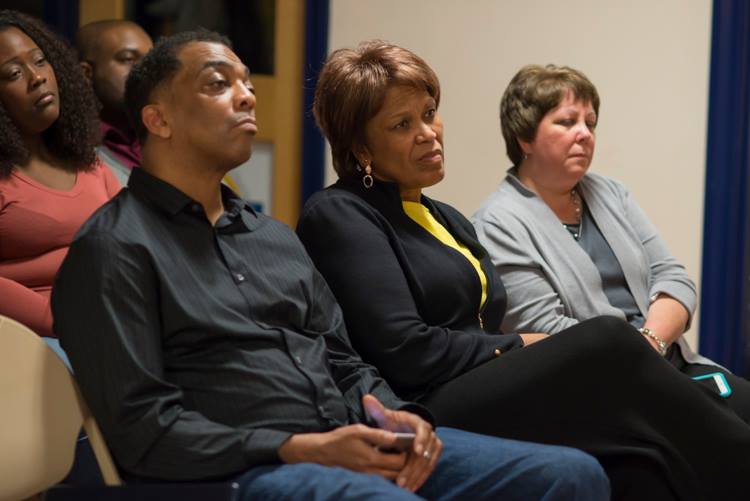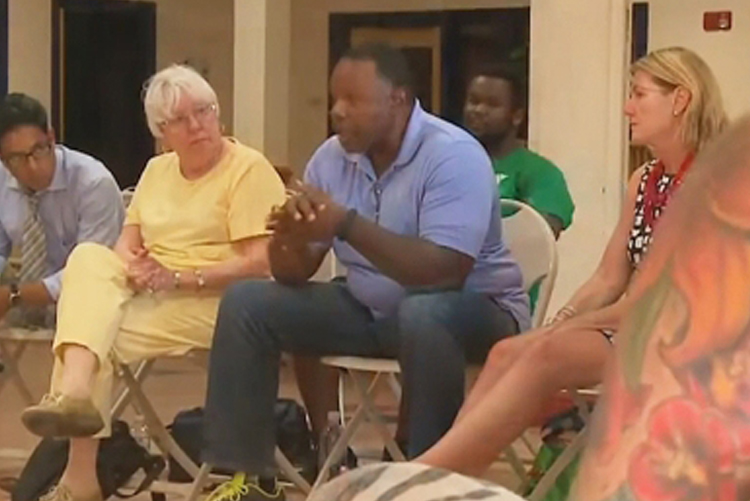SOCIAL IMPACT CENTER
PROGRAMS

CAN WE TALK… ® NETWORK
Can We Talk… is an anonymous drop-in program where you are invited to safely share your stories of pain, grief, loss and healing from trauma and whatever you are going through.
The program provides a caring community of peer support that can protect against the isolation and stigmatization that often accompany formal treatment. Neighbor offers neighbor a compassionate, judgment-free presence that says – you are not alone.
CORY JOHNSON PROGRAM
for Post-Traumatic Healing
The Cory Johnson Program, named after a promising young church member who was murdered in 2010, provides weekly trauma support using a community-based approach to foster recovery and healing from all sources of traumatic stress, including exposure to violence, poverty, and racism. We currently serve over 1800 people per year. Programming addresses all aspects of trauma’s impact on the body, mind, and spirit.
The program provides a caring community of peer support that can protect against the isolation and stigmatization that often accompany formal treatment. Neighbor offers neighbor a compassionate, judgment-free presence that says – you are not alone.


Community and Clinical Supports Department
Community Trauma Healing Specialist
Shondell Davis is trained in specialized skills to provide trauma-focused mental health support over the long haul to individuals and families. Read about Shondell in this Boston Globe article. She provides multiple types of support:
- Assists in the aftermath of a traumatic event after first responders have left.
- Connects people to social and medical services in the community.
- Accompanies people to medical, mental health, educational, legal, and housing appointments.
- Serves as an ongoing advocate to specific families, thus allowing for deeper post-traumatic stress assistance.
Community Companions
Trauma survivors themselves, these core team members offer trauma healing-focused peer-led emotional support. They strive to provide a safe, trusting, and consistent presence.
Like peer recovery coaching, both the Community Trauma Healing Specialist and Community Companion roles mobilize individuals who have first-hand life experience with complex trauma to motivate and support others on their journey of recovering from trauma. We expect these models to fill critical gaps in the existing care continuum in our mental health and medical systems.
